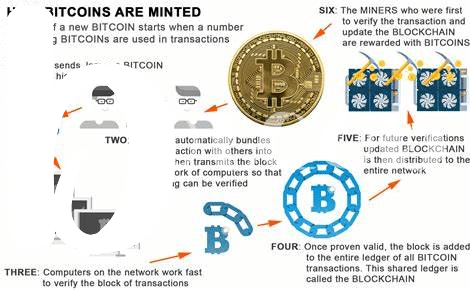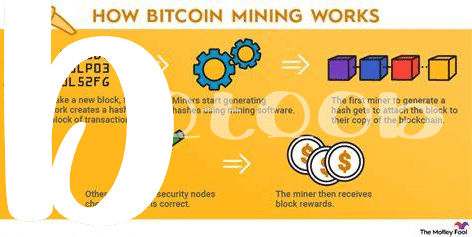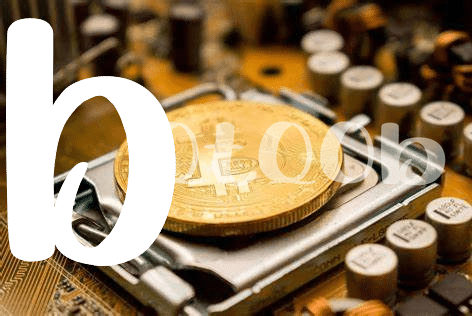🌍 Discovering Bitcoin Mining Laws Around the World

Imagine opening a map and seeing a colorful patchwork quilt, each patch representing a country with its unique set of rules for bitcoin mining. It’s like setting off on a treasure hunt, but instead of searching for gold, we’re digging into the digital world of cryptocurrencies. As we journey from one country to another, we see that some places welcome bitcoin miners with open arms, offering them incentives and low energy costs. Meanwhile, other countries put up a big stop sign, creating strict regulations that make it tough to mine. This global mosaic of laws isn’t just about whether you can mine or not; it’s about how these rules shape the very landscape of bitcoin mining. By understanding these laws, miners can navigate the waters more smoothly, finding the best spots to set up their operations. Here’s a quick glance at how diverse these regulations can be:
| Country | Bitcoin Mining Status |
|---|---|
| USA | Varies by state |
| China | Heavily restricted |
| Canada | Friendly, with regional differences |
| Iceland | Friendly, due to renewable energy sources |
| Russia | Regulated with governmental oversight |
This glimpse into the world’s approach to bitcoin mining laws not only highlights the complexity but also the opportunity for those who are willing to delve into the details and find their sweet spot in the global mining ecosystem.
⚖️ How Different Countries Treat Bitcoin Mining
Around the globe, the way countries approach Bitcoin mining is as varied as the landscapes they sit in. Some nations roll out the welcome mat, offering incentives like low electricity rates and supportive legal environments, turning themselves into havens for miners seeking profitable ventures. On the other hand, others have raised red flags, imposing strict regulations or outright bans, concerned about energy consumption and regulatory control. This push and pull creates a complex map for miners to navigate, balancing the search for green pastures with the need to tread carefully through legal minefields. Amidst this landscape, understanding the nuances of mining regulations becomes crucial. For those looking to dive deeper into the world behind these digital currencies, https://wikicrypto.news/smart-contracts-on-the-blockchain-beyond-bitcoin offers a treasure trove of insights, shedding light on the intricate technology that underpins Bitcoin mining and beyond.
📉 the Impact of Regulations on Bitcoin Mining Profitability

Imagine trying to dig for gold, but each place you go has different rules on how you can dig, what tools you can use, and even how much of the gold you find you get to keep. That’s pretty much what’s happening in the world of bitcoin mining. Some countries roll out the red carpet, making it easy and profitable to mine. They keep taxes low and the electricity cheaper. In these places, miners can really cash in on their efforts.
But then, there are countries that are like grumpy landlords. They make things tough with heavy rules, high taxes, and pricey electricity. It’s like trying to run in a race with your shoes tied together. Miners in these areas find it hard to make a profit, and sometimes, they have to pack up their digital pickaxes and move to friendlier territories or come up with clever ways to keep mining without landing in hot water. It’s all about finding the sweet spot where the efforts meet rewards.
💡 Innovative Solutions for Legal Mining Challenges

As the legal hurdles of bitcoin mining mount worldwide, creative minds are buzzing with groundbreaking solutions. Imagine a world where solar farms and wind turbines power our quest for bitcoin, minimizing the legal friction by leaning on renewable energy sources. This isn’t just a dream. In some corners of the globe, miners are already setting up in places with cheap, green energy to stay ahead of the legal curve. It’s a smart move that tackles two big challenges at once: staying on the right side of the law and reducing the carbon footprint of mining operations.
To make these innovative practices more accessible to everyone, miners and enthusiasts are also sharing their knowledge online. For those looking to dive deeper into the world of bitcoin and how it intersects with energy use, how to buy bitcoin and the blockchain is a treasure trove of information. It’s not just about understanding the legal landscape; it’s also about embracing the community’s push towards sustainable and legally compliant mining solutions. These efforts not only help in navigating the legal complexities but also contribute positively to the planet’s well-being.
🚀 Countries Leading in Bitcoin Mining Friendliness
When it comes to a warm welcome for bitcoin miners, some countries roll out the red carpet, while others show them the door. Imagine a place where the government says, “Sure, come set up your computers here, use our energy, and mine those bitcoins.” These are the lands where laws and regulations smile upon the art of mining digital gold. For instance, countries like Canada and Kazakhstan stand out. Canada, with its cold climate, helps keep those hard-working mining machines cool, saving a lot on air conditioning costs. Plus, its government has a pretty open attitude towards cryptocurrencies in general. Across the globe in Kazakhstan, the government has also caught the crypto fever, offering miners plenty of resources to dig into their work.
| Country | Friendliness Level | Reason for Ranking |
|---|---|---|
| Canada | High | Cool climate and open government stance |
| Kazakhstan | High | Supportive government policies |
This doesn’t mean it’s all smooth sailing. Each of these friendly countries has its own set of rules that miners need to follow. But, compared to places where the door is firmly shut, these nations offer a glimmer of hope. Whether you’re looking to dig into bitcoin mining or just curious about where it’s thriving, keeping an eye on these spots could be very interesting. After all, where the laws favor mining, innovation and investment are likely to follow.
🌱 Environmental Concerns and Legal Mining Practices

When we talk about Bitcoin, it’s not just about making money. There’s a big question mark on how it affects our planet. Imagine all those computers working non-stop, eating up a lot of electricity. This can be pretty tough on our environment, making people raise their eyebrows about whether this is the right way to go. Some countries are stepping up, looking at ways to make Bitcoin mining be friends with nature. They’re exploring using clean energy sources, like wind or solar, to power these operations. This way, we’re not just digging for digital gold but also taking care of our home, Earth.
For those curious about how all of this magic happens, how computers mine Bitcoin and keep track of everything, there’s a way to understand it better. Think of it as a treasure hunt where your computer solves puzzles to find Bitcoin. If you want a deeper dive into this fascinating world, check out how it all works with this handy guide on what is bitcoin mining for beginners. It’s a great starting point for anyone looking to learn about the blend of technology and finance and how we can do it without harming our planet.
